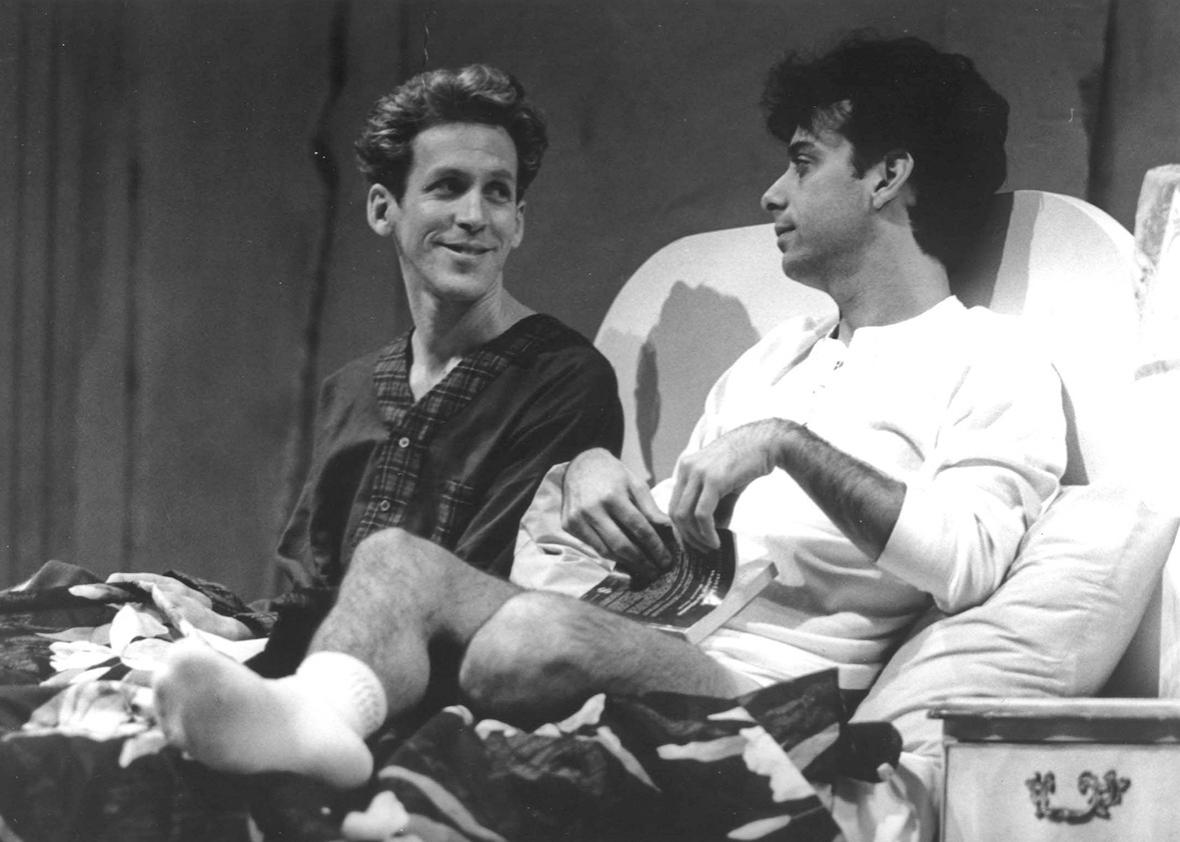In 1991, a play premiered at San Francisco’s tiny Eureka Theatre, a show that would go on to make a name for its playwright Tony Kushner and its stars, change the way gay lives were talked about in art and outside of it, and become an honest-to-goodness cultural phenomenon. The play, of course, was Angels in America, which is celebrating its 25th anniversary this summer. This week Slate’s Isaac Bulter and Dan Kois paid tribute by publishing a complete oral history of Angels, from the never-ending rewrites to the disastrous attempts at flying in tech rehearsals to one very charged tug of war involving Marcia Gay Harden and a wig. Everyone from Kushner to Meryl Streep to Frank Rich makes an appearance, and the piece tells the story of the making—and lasting legacy of—a timeless work of American art. You’ll enjoy it even if you’ve never seen the play, but it will probably move you to check out the HBO adaptation from 2003.
HBO adapted a great play without ruining it, and the network continues to dominate the high-end entertainment conversation today. Sunday’s Game of Thrones finale had Slatesters buzzing: In a surprising twist, the episode actually satisfied its audience by giving them what they wanted. Still, we speculated: Is the reason that Varys gets everywhere so fast that he’s really a merman? What’s Sansa’s endgame in all this? And don’t click here unless you to want to read an obituary for one of our favorite characters who we lost in the finale. Plus a larger question, about not just Game of Thrones but lots of TV shows: How’d they get so dark? Not thematically but literally, like in the lighting—it’s hard to see anything! Matthew Dessem interviewed cinematographers to unravel this shadowy mystery.
The BFG, Steven Spielberg’s movie version of the Roald Dahl children’s book, dispenses with darkness in favor of fairy-tale lightness. Slate’s Dana Stevens found the end result a little schmaltzy but worth seeing for Mark Rylance’s motion-capture performance as the giant alone. The movie also got us wondering: When it comes to pop culture giants, just who is the B-est F-ing G of them all?
A few more links for your holiday weekend:
- What to stream on Netflix, Hulu, and more in July
- New York Times photographer Bill Cunningham, remembered
- Tough week for The Daily Show: First an awkward tweet, now it’s losing the great Jessica Williams
- Why emojis make the perfect conversation-ender
- Jesse Williams gives an impassioned speech and achieves woke baeitude
- Independence Day: Resurgence is scarily casual about global threats
- Is the Times crossword clueless about gender?
- Tichina Arnold on her favorite Martin moments
- Why do women still wear skirts to play tennis?
- Shame-tweeting is the new humble-bragging
